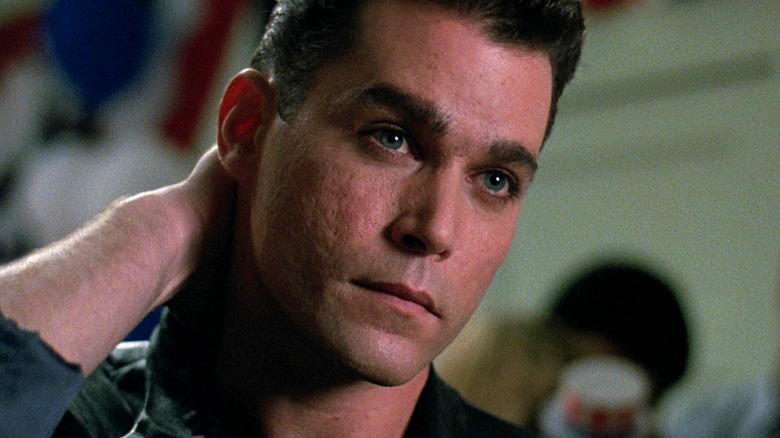
My favorite Ray Liotta performance won't make this list. Technically, it can't.
FX's "The League" is a television show that's as broad as a half-hour situational comedy gets. It's the story of terrible people doing terrible things in the name of their bad fantasy football teams. In one of the show's best episodes, Ruxin (Nick Kroll) gets chummy with his boss, Mr. Hudabega (Ray Liotta), a fastidious germaphobe. Ruxin is sick and, when he tries to hide it during a meeting, Hudabega goes full Liotta. "There's no crime in being sick," he coos before leaning forward and grimacing, "The crime is not telling other people that you're sick."
This moment is Ray Liotta in a nutshell. No actor could vacillate from funny to frightening more fleetly. No performer could make you feel like that hair-trigger switch was both human and not of this galaxy. When Liotta stopped moving, so did the Earth — that was the extent of his gravity. Whether he was eerily still as Uncle Sal in "The Many Saints of Newark" or shaking audiences' souls with one of the top-five laughs ever committed to celluloid, Ray Liotta changed the world of cinema forever. As good as he was on television, we must celebrate his contributions to film — and life — accordingly.
Here are the 14 best Ray Liotta movies, ranked.
Youth In Revolt
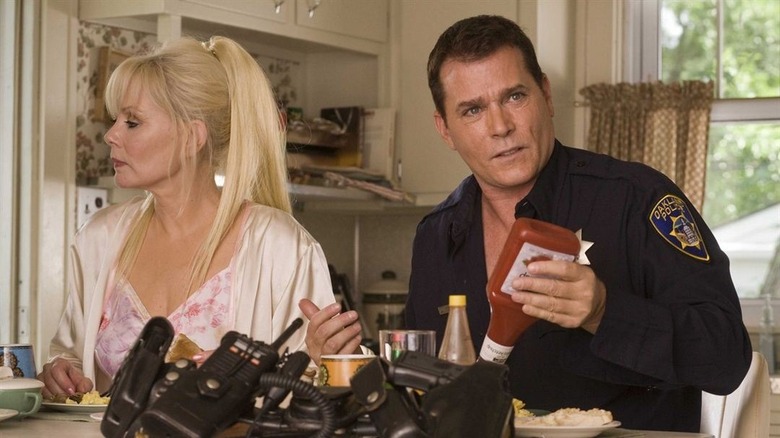
"Youth in Revolt" is best remembered as Michael Cera's crossover moment. In Miguel Artera's spry, heartfelt adaptation of C.D. Payne's epistolary novel, the "Arrested Development" star stretches far beyond George Michael Bluth in the dual roles of Nick Twisp and François Dillinger. Dillenger is Twisp's mustachioed alter ego, a projection that Twist creates to get the girl of his dreams (Portia Doubleday) and move through life more pleasurably. This means getting high on mushrooms, stealing multiple cars, and generally causing chaos. Cera is unquestionably excellent in both roles, and the movie has a number of minor but excellent pleasures. Ray Liotta is one of them.
It's remarkable how often Liotta played characters that skirted both sides of the law. His resume is filled with cops who look the other way and criminals whose humanity hits audiences like a sucker punch. In "Youth in Revolt," Liotta offers up the former as officer Lance Wescott, Nick's mom's new boyfriend. After Nick's first bout of auto theft, Wescott agrees to report the car as stolen if Nick will go and live with his father. The moment is loaded. Wescott is making a play for what he wants but, as Liotta's performance makes clear, he recognizes a sliver of himself in Nick, too, and acts accordingly. Liotta carries the scene, and is one of many elements that elevate "Youth In Revolt" above standard coming-of-age fare.
The Many Saints Of Newark
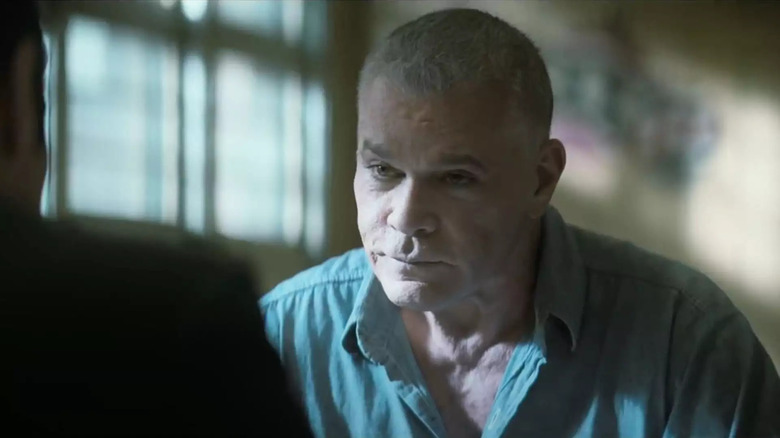
"The Many Saints of Newark" is not Ray Liotta's last film. The New Jersey-born actor will soon be seen in the Taron Egerton headliner "Black Bird" and Elizabeth Banks' beautifully titled "Cocaine Bear." All the same, David Chase's Alan Taylor-directed feature-length "Sopranos" prequel works as an inadvertent swan song for a tremendous talent gone too soon.
"The Sopranos" redefined TV as we know it, and is one of the seminal mob tales of the 20th and 21st centuries. Liotta was in many of those, too, including both "Goodfellas" and "Killing Me Softly." So, it's only fitting that Chase would find room for him in "The Many Saints of Newark," especially since Liotta famously passed on playing Tony Soprano before James Gandolfini was cast in the role.
And yet, the characters that Liotta plays in the film are still somehow even more compelling than you might imagine. Liotta takes on two roles in "The Many Saints of Newark": twin brothers Aldo "Hollywood Dick" and Salvatore "Sally" Moltisanti. Aldo is closer to the classic Liotta archetype, full of coiled rage and violent pivots. By contrast, Sal is remarkably still. He enters the film, ghost-like, in the wake of Dick's passing. Every scene he's in takes place at a conjugal visit table, meaning there's minimal movement in these moments. There's just Ray Liotta, bearing his soul while saying very little and interrogating the nature of Uncle Dickie (Alessandro Nivola)'s heart. It ends up feeling like Liotta is in direct conversation with the genre and type of characters that made him famous. For a performer like Liotta, that's one heck of a curtain call.
Kill The Messenger
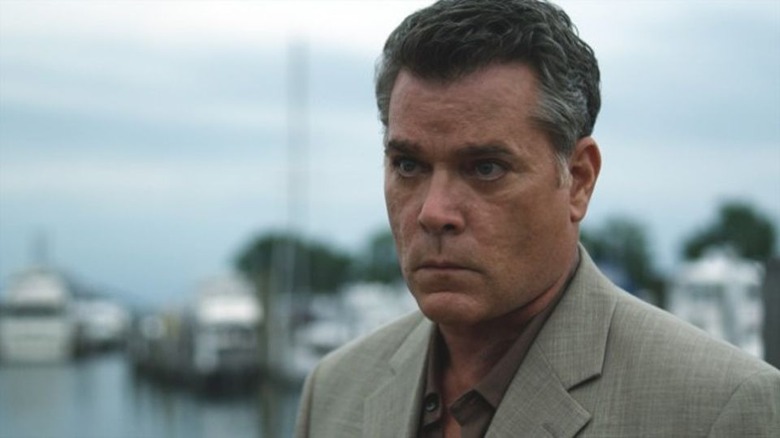
"Kill the Messenger" is one of the more underrated titles on Ray Liotta's resume. To be frank, it's one of the more underrated titles on its whole cast's CVs. A sterling crime drama directed with wit and verve by Michael Cuesta ("L.I.E.," "American Assassin"), "Kill the Messenger" deserves credit for its clear but rambunctious retelling of San Jose Mercury News reporter Gary Webb's attempt to reveal the ties between the CIA and a drug-smuggling ring. It's also one of the few movies post-"The Hurt Locker" that fully understands how to use Jeremy Renner's star power. Renner is on fire here as Webb, a journalist whose swagger is less boisterous than it is innate, even in the face of brewing violence. But the whole ensemble is excellent, from Andy Garcia to the late Michael K. Williams to, yes, the great Ray Liotta.
"Kill the Messenger" is a fun Liotta film because the actor lets other thespians do the heavy lifting. Although Liotta's third-act arrival as John Cullen, a CIA source, is essential to the film's plot, its engine is powered by Williams' electric portrayal of "Freeway" Rick Ross and an incredibly ominous Michael Sheen. A movie is doing something right if a heavy hitter like Liotta only has to come off the bench for a few minutes of screen time; "Kill the Messenger" is one of those movies.
Identity
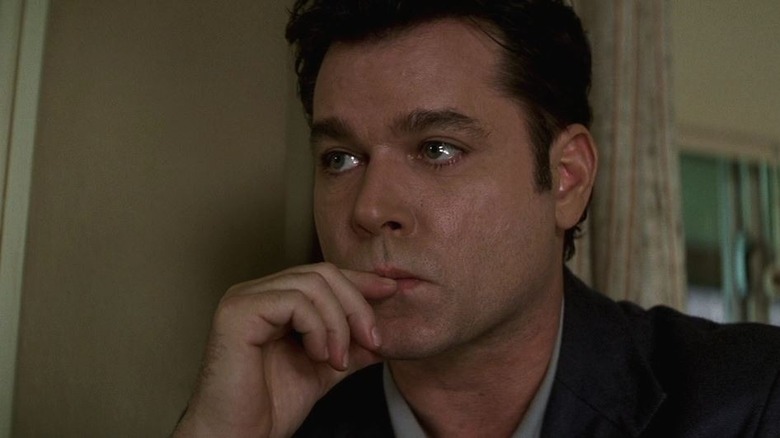
"Identity" is not the best movie on this list, but it's arguably my favorite. It's my favorite in the way that every single one of us has a preferred fast-casual food chain, one that we swear up and down is actually great, and not just a good place to eat because it's easy to access and its menu is uncomplicated.
"Identity" is similarly easy to get into. It's convoluted, but not complicated. Several strangers played by John Cusack, Amanda Peet, Ray Liotta, and countless other wonderful actors arrive at a motel in the middle of a thunderous rainstorm. Everyone gets stuck, and people start dying. As the bodies pile up, James Mangold's dark murder mystery becomes a Gothic deconstruction. Twists become red herrings, and red herrings become the keys to unlocking an increasingly wild story.
Sometimes, that's all you need. For every cinematic masterpiece that hits theaters, there should be a fast-casual film that hits the spot instantly and makes you feel like a million bucks. "Identity" is exactly that kind of film. Go ahead and order up.
Field Of Dreams
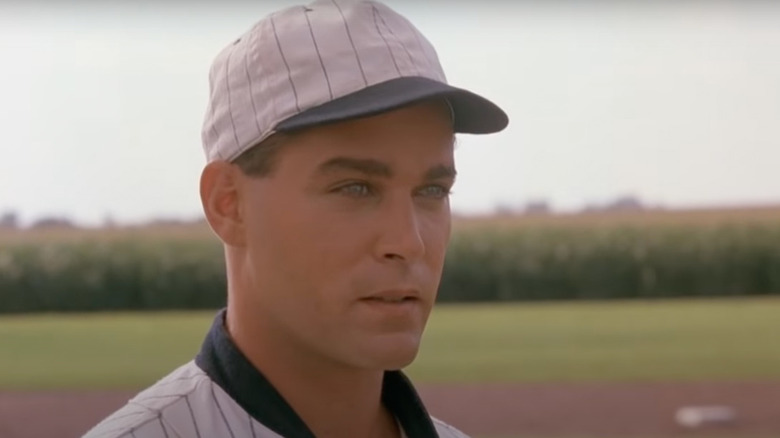
Liotta is the antithesis of "Field of Dreams," the celebrated baseball movie that he happens to star in. Actors are part of ensembles, and ensembles give voice to a project's heart and soul. Technically, Liotta fulfills that duty as the ghost of Shoeless Joe Jackson, one of many ball players that Ray Kinsella (Kevin Costner) encounters when he builds a magical baseball diamond.
But "Field of Dreams" is as deliberately saccharine, sweeping, and big-hearted as its Midwest setting. Shoeless Joe Jackson isn't. Jackson is as rooted in the Great Depression as he is in a family-friendly sports story. Accordingly, Liotta's performance fights "Field of Dreams" at every turn, finding shades of anger, desperation, and competitive drive that few actors could. If Ray Kinsella is afraid of aging without having achieved anything, Shoeless Joe Jackson is a man who's achieved plenty, and for whom that's still not enough. Liotta provides the contrast that makes "Field of Dreams" soar. It simply wouldn't be successful without him.
Marriage Story
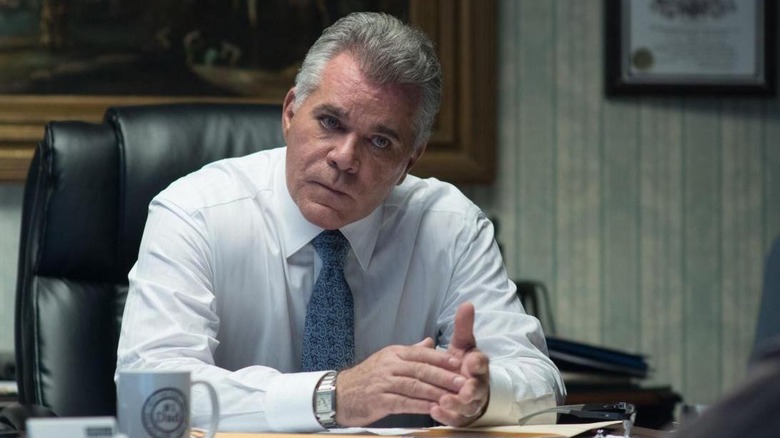
The outpouring of love for Ray Liotta in the wake of his passing confirms his sterling reputation. The initial response to Noah Baumbach's "Marriage Story," however, proves that Ray Liotta was also highly underrated. How else to explain critics praising the work of Scarlett Johannson, Adam Driver, and a mesmerizing Laura Dern but, by and large, failing to even mention Liotta?
In "Marriage Story," Liotta plays Jay Marotta, the second lawyer that Charlie Barber (Driver) hires to oversee his divorce proceedings. Marotta isn't above fighting dirty. When the case moves to court, Marotta engineers a series of character assassinations against Charlie's soon-to-be-ex-wife, Nicole (Johannson), and threatens legal action after Nicole hacks Charlie's emails.
If "Marriage Story" is the tale of how love can turn caustic without ever really going away, Marotta is the embodiment of what happens when cynicism takes the driver's seat. His history is written all over his face. It's seen through every action he takes as a lawyer. He's an essential counterpoint to Dern's Nora Fanshaw. "Marriage Story" is a very good film, but it's on this list because Liotta deserved more praise for his sterling performance.
No Sudden Move
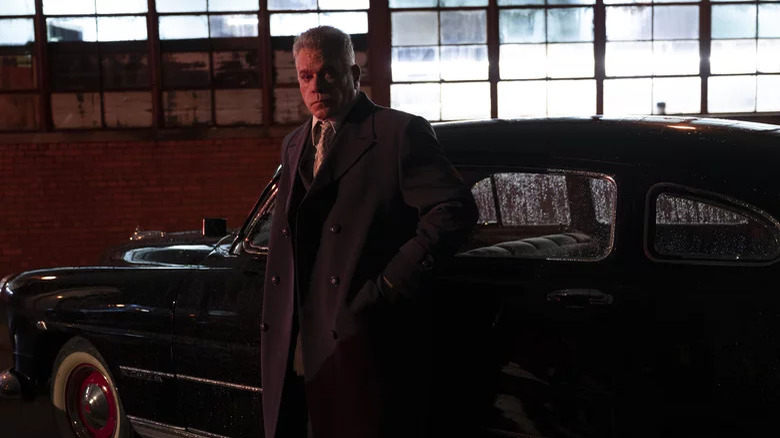
In sports, a "heat check" occurs when an athlete tests how well they're playing on any given day. If they're playing basketball, maybe they shoot from well beyond the three-point arc. If they're golfers, they may aim for a hole in one. In either instance, the athlete already knows they're good; they're trying to determine their potential for greatness.
Steven Soderbergh has been on a heat check his whole career. Every project he takes on tests his ability and range. In the last five years, Soderbergh has made a techno thriller ("Kimi"), an off-season sports drama ("High Flying Bird"), and a comedy about money laundering ("The Laundromat"). None have diluted the power of his resume. The man just keeps sinking baskets.
"No Sudden Move" is another one of Soderbergh's recent hits. On paper, this 2021 period crime caper might be Soderbergh's least ambitious. He reunites with "Ocean's" trilogy stars Don Cheadle and Matt Damon for the production, and the are obvious strands of "Out of Sight" and "The Limey" in its DNA.
And yet, "No Sudden Move" feels like a wholly original entry on Soderbergh's filmography for two reasons. First, the script by Ed Solomon ("Men in Black," the Soderbergh HBO drama "Mosaic") elucidates the private lives of its publicly stoic ne'er-do-wells with considerable grace and tact. Second, the cast makes those characters humans first and criminals second. This is seen most clearly through Ray Liotta's Frank Capelli, a role that could have been a riff on Henry Hill from "Goodfellas," but is instead beguiling and moving. That's a heat check if there ever was one.
Observe And Report
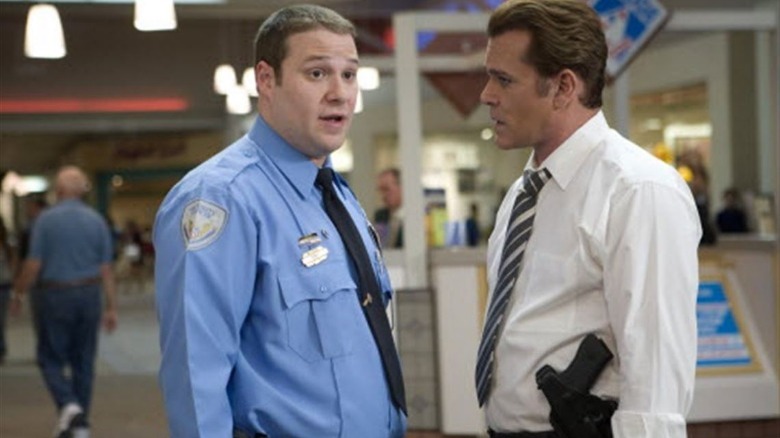
It is a tragedy that "Observe and Report" grows more prescient with every passing year.
That's not an exaggeration. Jody Hill's dark comedy concerns a mentally unstable mall cop named Ronnie (Seth Rogen) who uses the pursuit of a flasher as a means to join the police force. Throughout the film, he also endures psychological torment at the hands of Ray Liotta's Detective Harrison.
Despite his well-meaning gestures, Ronnie displays vigilante-like tendencies, and all of the chaos builds, chillingly, to a psych evaluation to see if Ronnie is mentally fit to join the police force. During the evaluation, Ronnie describes a recurring dream: "It starts on a playground ... and then you hear a rumbling. And over the horizon comes a black cloud made of cancer and puss ... You know what happens next? Out steps me, wielding the biggest f***ing shotgun you've ever seen in your life. And you know what I do? I blow every f***ing thing away." In Ronnie's mind, the world thanks him for this. He's just a guy with a gun doing God's good work.
We have seen Ronnies in modern day America more times than we can count. Sometimes, they're wearing uniforms. Sometimes, they have manifestos. Either way, we see them again and again and again. Few films have probed the psychology of Ronnies more expertly than "Observe and Report," and certainly none of the others have been this funny. But in modern day America, we often laugh to keep from crying. That's "Observe and Report" to a T.
The Place Beyond The Pines
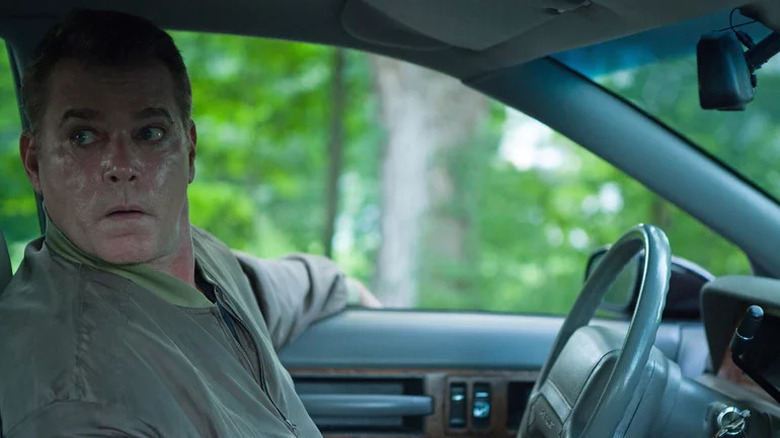
There are better movies than "The Place Beyond the Pines," but few that are more confident. Derek Cianfrance ("Blue Valentine," "I Know This Much Is True") begins his sprawling, multi-generational crime drama with an extended tracking shot. By the third act, we've followed the story of a robbery gone wrong 20 years out from the inciting incident and are dealing with the fallout of corruption and existential questions about familial fate in equal measure. Simply put, this movie goes for it.
Like many films, "The Place Beyond the Pines" sees Ray Liotta play a cop on the take, but "Pines" finds new wrinkles for Liotta's favorite archetype. During the film's second act, Liotta's Peter Deluca arrives at fellow officer Avery Cross' (Bradley Cooper) house. He is unannounced. He stays for dinner. To say why this moment plays out like a horror show would spoil the fun, but suffice it to say that the unbearable tension results from Cianfrance's assured direction and Liotta's coiled performance, which erupts into bursts of menacing and pointed laughter. It, like "Pines," is an American treasure.
Narc
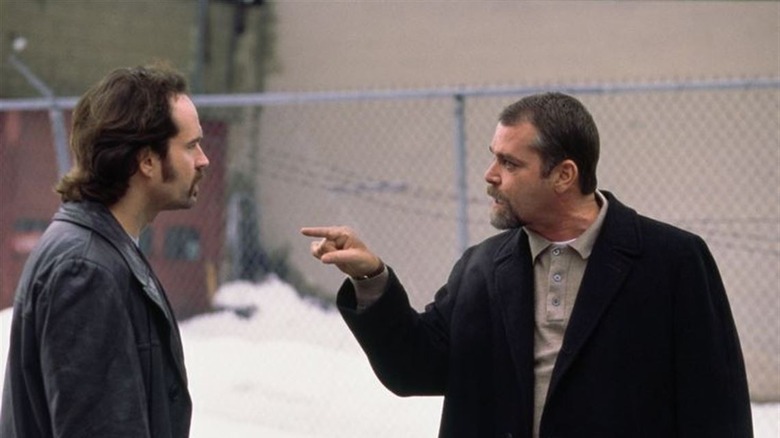
The "Narc" trailer is bookended by two quotes, one directly from Joe Carnahan's undercover cop thriller, and the other from French writer Voltaire. This is unusual and unexpected. So is "Narc."
The Voltaire quote reads as follows: "To the living we owe respect, but to the dead, we only owe the truth." This is the crux of the engine that powers "Narc." Suspended undercover officer Nick Tellis (a career-best Jason Patric) is brought back onto the force to investigate the slaying of a fellow officer, Michael Calvess. That means teaming with Henry Oak (Ray Liotta), Calvess' potentially unstable partner. As Tellis and Oak plumb the Detroit underground for Calvess' killer, their pursuit of the truth exposes their fundamental disrespect and mistrust of both city's poorer residents and, eventually, each other. That's where the other quote from the trailer comes in. "This has nothing to do with rules and regulations," Oak snarls, "and everything to do with right and wrong."
Who determines the rules in a world where chaos reigns? What happens when law enforcers cannot tell the difference between a crime and something more innocent? These are the questions "Narc" asks, but it doesn't offer any easy answers. What "Narc" does make crystal clear, however, is Liotta's talent. It is almost impossible to pick Liotta's best performance, but his fully-committed turn as Henry Oak is one for the record books.
Something Wild
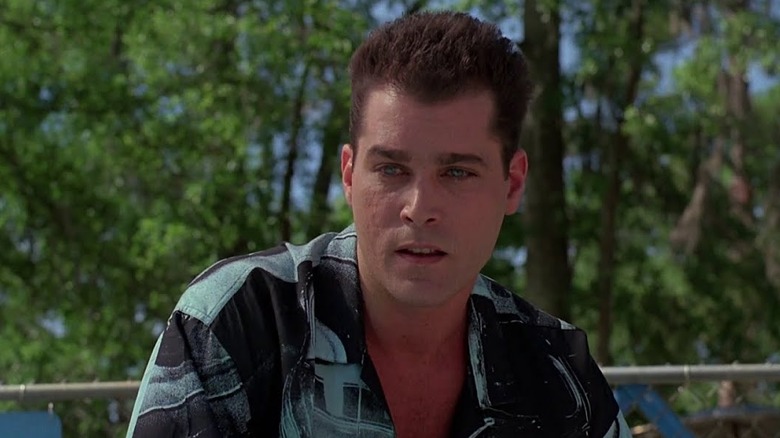
Ray Liotta could literally change the course of a movie. Just look at his second film. Even before Liotta appears, "Something Wild" is something wonderful. Directed by the irreplaceable Jonathan Demme, it's an action-comedy full of tonal twists and turns that features an irresistible Melanie Griffith and a charming Jeff Daniels. Its primary romance is singular, sleazy, and tons of fun. Then Ray Liotta shows up and turns it into an altogether different film.
Liotta plays Ray Sinclair, Melanie Griffith's Lulu's violent ex-husband. In his first appearance, he quite literally dances into the frame and changes the film from a waltz to tango. As "Something Wild" transforms into a thriller, it also becomes a celebration of film's endless possibilities. There's no genre that the movie won't touch, no grace note it won't play like a virtuoso, and all of it hinges on Liotta and his fireball presence. It's something wild, indeed.
Killing Them Softly
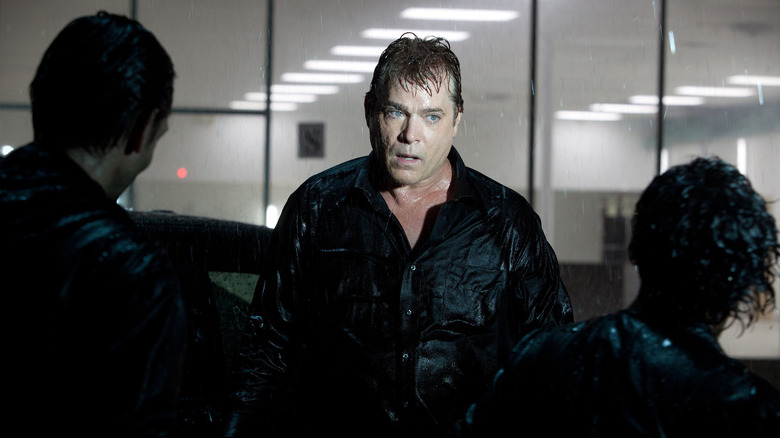
In "Killing Them Softly," mob boss Markie Trattman's (Ray Liotta) reputation comes back to haunt him. See, Trattman is known to have orchestrated a legendary inside job, which is why Johnny "Squirrel" Amato (Brad Pitt) decides to rob him. Amato figures that if he steals money from Trattman's own poker game, Trattman will be the most obvious suspect because of his past transgressions. This is more than good plotting. It's the thesis of the film writ large.
"Killing Them Softly" takes place during the American financial crisis, a moment when money was in the shortest supply the 21st century has seen yet, and what cash was available could be best described as "borrowed." It was a time so fraught that President Obama tried to unite the country by reminding it that "out of many, we are one." A clip of him saying so plays right before Amato offers his own description of the American Dream: "I'm living in America. And in America, you're on your own. America's not a country. It's a business."
Markie Trattman was in the crime business. America is in the country business. Both tried to trade on their reputations in order to get out of trouble. As history has shown, neither really did. This sobering truth, combined with sterling direction from Andrew Dominik, makes "Killing Them Softly" more than excellent. It's important. If you've never seen it, now's the time.
Cop Land
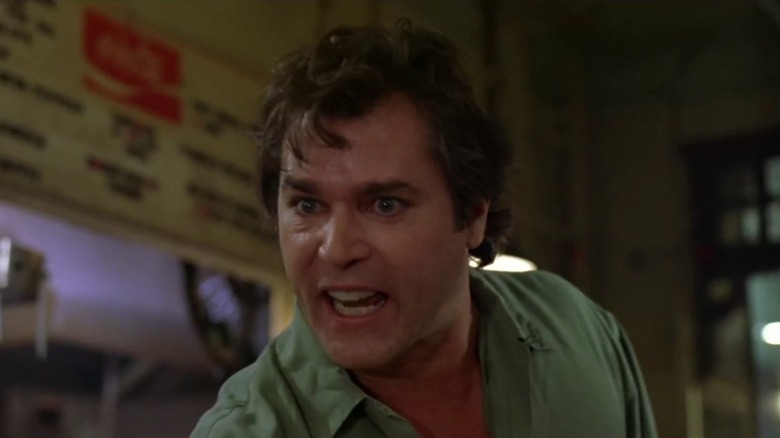
In "Cop Land," Ray Liotta shoves a dart up the nose of the T-1000 himself.
No, not the actual T-1000. And, yes, James Mangold's modern neo-noir masterpiece is much more than the sum of its ecstatic but gritty and violent parts. All the same, Ray Liotta takes Robert Patrick to town so hard that Harvey Keitel seems genuinely distressed by it. I mention all these actors by name because, at its core, "Cop Land" casts recognizable actors from every side of the action and crime film canon (Liotta, Robert De Niro, the previously mentioned Keitel, and Sylvester Stallone) to hammer its thesis home: There are two Americas, and police violence marks the dividing line.
That "Cop Land" was made in 1997 and is still fiercely resonant today should speak to its greatness. That it echoes "Chinatown" and "High Noon" before staging its iconic action finale should, too. But it's the fact that even the film's tiniest moments, like Liotta making memorable use of a dart, trended on social media as soon as Liotta passed that speaks to its greatness. There's not a single dull or unimportant gesture in "Cop Land." It is an empathetic and effective slice of crime movie nirvana.
Goodfellas
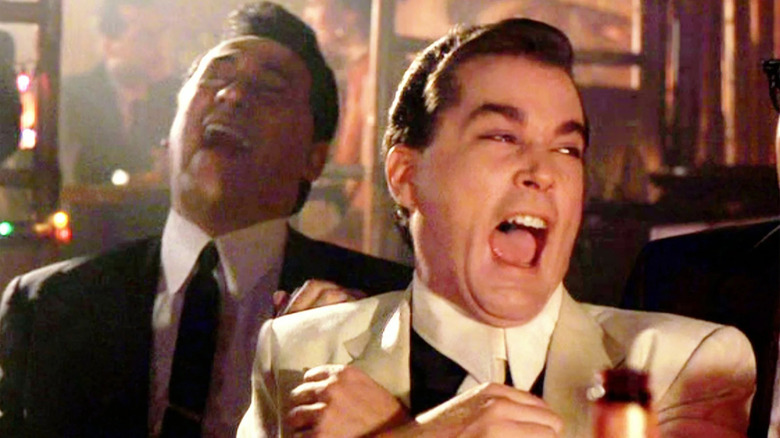
It's hard to imagine writing anything about Martin Scorsese's all-time masterpiece "Goodfellas" that others haven't already said, but here it goes.
The image of Ray Liotta laughing, seen above, is a meme now. You need only to peruse Twitter sparingly over the course of the day to find it in the replies of any given thread. It is second-generation pop iconography, a moment that was already a piece of classic cinema but is now used as conversational shorthand. For my money, that is proof that, more than any other mob movie short of "Scarface," "Goodfellas" connected pop stars with criminals. A cult of personality informs both. The wealth that each accrues is both an enticement to hustle and the stuff that capitalistic dreams are made of. "Goodfellas" has as much in common with "A Star Is Born" as it does "Donnie Brasco," from the sequences of Henry Hill's (Ray Liotta) dizzying rise to his drug-fueled, paranoia-rich breakdown.
"Goodfellas" is also the film that made Ray Liotta a star. There are many reasons to believe Liotta would have become a Hollywood institution without Scorsese's mob epic — just look at the rest of this list for proof — but it's impossible to imagine any other film serving as a North Star for the rest of Liotta's career. The world owes "Goodfellas" a debt in more ways than one. In light of Liotta's passing, giving it a first or repeat viewing feels absolutely necessary.
Read this next: The 12 Best Mob Movies You Need To See Immediately
The post The 14 Best Ray Liotta Movies, Ranked appeared first on /Film.

